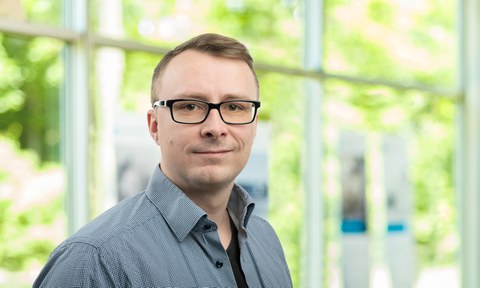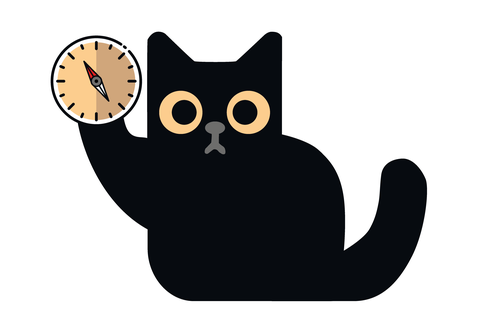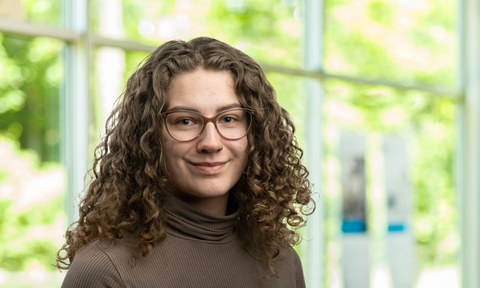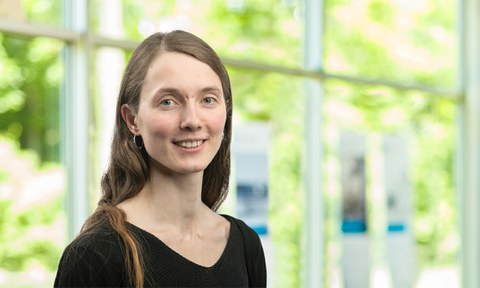Mar 12, 2025
New Writing Peer Tutors
In March 2025, four new writing peer tutors from the TU Dresden Writing Center successfully completed their training for writing consultation and received their certificates.
In the following text, Emilia and Rebekka, two of the four, describe the course of their training and introduce themselves and their colleagues:
- Writing academic texts & freewriting as a thinking tool
- The basics of writing advice & individual writing paths
- Giving feedback on texts & focusing on and accepting feedback
The path to writing consultation
Since summer semester 2024, we, four students, have undergone the qualification as writing peer tutors at the Writing Center and have now successfully completed it. We were able to reflect on our writing process and acquire theoretical knowledge about it through self-study, practical exercises and joint discussions. In this article, you can find out more about the modules and get to know us, the new faces at the Writing Center, better.
Module 1: "Writing academic texts"
In this module, we looked at topics relating to writing didactics: from reading during your studies to time planning and revising academic texts.
In part, we attended the workshop series "Fundamentals of academic reading and writing".
In addition, we discussed our experiences and challenges with our writing processes in our qualification round. In the process, we developed our consulting manual with various methods and strategies that we are happy to share with you in our work at the Writing Center.
Question for Hugh: Which of the methods/strategies developed in our consulting handbook have you personally found particularly helpful in your own writing process?

Hughs Highlight: Freewriting als Denkwerkzeug
"If I were to highlight one method, it would undoubtedly be freewriting. It turned writing from an earmarked task into a thinking tool for me. I use it as a brainstorming technique, to organize my thoughts, to capture and process information and to overcome writer's block."
Module 2: The basics of writing advice
The core of our second module consisted of two workshop days in which we worked together on the topic of the consulting situation . On the first workshop day, we brainstormed our understanding of our roles and principles of consulting , e.g. how to initiate a conversation at eye level and how we can encourage and motivate.
On the second day of the workshop, we received support from two experienced writing peer tutors from the Writing Center. They carried out consultation simulations with us. We were able to apply the discussion methods and techniques we had learned and pick up some insider tips in the reflection discussion.
Parallel to Module 2, we gained our own initial consulting experience and were advised on our individual concerns from our studies by certified writing peer tutors.
Question for Grit: Which of the consulting principles did you become particularly aware of in the consulting simulations and how would you like to implement them in your future writing consultations?

Grit unterstützt Studierende, ihren Schreibweg zu finden.
"Person-centered work and the principle of 'Higher Order Concerns (HOC) before Later Order Concerns (LOC)' are particularly important to me, because both can be applied far beyond writing consulting. I will therefore work very individually with those seeking advice so that they can find their 'writing path'. Together, we will try to find out which concerns need to be prioritized so that they can become successful writers, because writing is not rocket science and can even be fun."
- If you would like to explore your individual writing path, the writing type test (PDF) can help you - preferably in combination with a writing consultation (dates on OPAL).
Module 3: "The text in the writing consultation - giving feedback on texts"
For us writing peer tutors, it is important to know the concerns and wishes regarding your text. That's why, on another workshop day, we first discussed the theoretical goals and characteristics of helpful text feedback. We learned about the different levels of text feedback (structure, wording, etc.) as well as clear guidelines to guide us when reading your texts.
We also learned how we can act in a consultation situation to actively involve you in the feedback process so that we can work together effectively on your text. We then tried the whole thing out again in consultation simulations. Each of us acted as both the person seeking advice and the person giving advice and thus got to know both sides of the peer writing consultation.
Question for Emilia: What difference did you feel most clearly when giving and receiving text feedback, and how did it help you to better understand your own role as a writing consultant?

Emilia liest gern Texte und gibt Textfeedback.als "Hilfe zur Selbsthilfe".
"When giving feedback, I realized the influence that things like markers in the text or content-related questions have on the course of the conversation. As a writing peer tutor, I understood how important it is to involve those seeking advice as much as possible in the text feedback process so that we can work according to the 'help for self-help' approach. As a peer tutor interested in the text, I am convinced that we will succeed!"
Module 4: "Accompanied practice development"
The focus of our last module was on practical experience. Here we organized three formats independently or in a peer tutor team.
These were
- Observations - We observed various writing peer tutors in order to familiarize ourselves with the writing consultation setting. This was followed by a joint reflection on the consultation situation.
- Practice writing consultations - For practice purposes, we carried out writing consultations with people from our circle of acquaintances. The process was accompanied by consultation protocols and reflection discussions with experienced writing peer tutors, with the aim of creating awareness for the further development of our own consulting activities.
- Writing consultation meetings - Writing consultation meetings take place every two weeks and serve as a form of collegial case consultation. During these meetings, all writing peer tutors have the opportunity to discuss particular situations in writing consultancy and gain new perspectives.
Question for Rebekka: Which of the three formats in the practical introduction has influenced you the most in your development as a writing peer tutor and why?

Rebekka freut sich auf die individuellen Beratungsanliegen.
"Spontaneously, I would say the practice consultations. I did exactly what peer writing advice is essentially about. Every person seeking advice, every issue is so individual in the end that a special conversation dynamic develops. I have already experienced in the few consultations how different approaches to the writing process can be. And I'm sure there are still many new things waiting for me in the coming semester!"
Accessibility Note: Detailed video description to read and have read aloud at https://tud.link/25u4.
You can see how a writing consultation can work in this video:
You can also find all the information about writing consultation, including in a FAQ, on the Writing Center website under "Writing Consultation" and in the Writing Center's OPAL course under "Writing Consultation".
Portfolio & graduation
The final step of the qualification is a portfolio in which you reflect in depth on your own writing process and the experiences gained during the course. The portfolio also served as the basis for the final interview, in which personal developments and further training opportunities were discussed. In the winter semester 2024/2025, we finally started working as writing peer tutors. Observations and further reflection meetings awaited us and we can now say with certainty: We look forward to seeing you in the writing consultation! (Appointments can be made via OPAL)
Emilia Zelazek and Rebekka Richter

